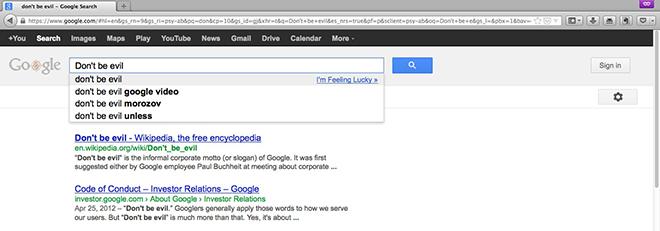European Union regulators have accepted a proposed solution from Google to end an antitrust probe questioning whether the search giant uses its dominant market position unfairly, but Google's competitors are reportedly unsatisfied with the deal.

The deal between Google and the European Commission would see Google clearly labeling search results from its own properties — such as Google Plus Local and Google News — and sometimes showing links from rival search engines, sources familiar with the negotiations told The New York Times. Google would not be required to alter the algorithm that produces its search results, and the changes likely would not show up on users' screens for at least a month.
The EU's antitrust investigation looked into whether Google was using its search dominance to tout its own services ahead of those of its competitors. Large Internet and software rival Microsoft was one of the primary complainants before the European Commission, but Microsoft was joined by smaller players, including British comparison shopping site Foundem and social review site Yelp.
Aside from its alleged favoring of its own offerings, the plaintiffs also charged that Google disadvantaged competitors by pulling material from other web sites for search results.
The agreement would require Google to label Google-owned properties in areas where it doesn't make money from search results. In areas where Google does make money off of ads, such as local business reviews, Google would have to show links to at least three competitors. In areas like shopping, Google would auction links to rivals.
The search company would also be required to allow competitor services the ability to block as much as 10 percent of their web content from displaying in Google search results. Google, then, would be unable to, for instance, display hours of operation from Yelp listings. Google would also have to make it easier for small businesses to move their ad campaigns to other search engines.
Responding to the news that a settlement may be near, representatives for the plaintiffs told Bloomberg that the deal appears to be insufficient as far as they're concerned.
"If what has been proposed is a labeling or a modified form of labeling, frankly that's a non-starter," a lawyer for an industry group including Microsoft told Bloomberg. "We haven't seen the proposals and the commission hasn't explained them to us. We're in the dark."
Wood's group wants any settlement to "set out non-discrimination principles and the means to deal with the restoration of effective competition, plus effective enforcement and compliance" in order for it to be acceptable. The settlement would also have to be global in order for Google's competitors to be satisfied.
The EU settlement is another chance for Google's rivals to extract concessions from the search giant. Another antitrust case in the United States closed earlier this year with the Federal Trade Commission concluding that Google had been more interested in improving its search results than in stifling competition.
Any agreement Google reaches with the European Commission would be legally binding for a period of five years, with a third party ensuring compliance. A violation of such an agreement could lead to a fine of as much as 10 percent of Google's global annual sales.


